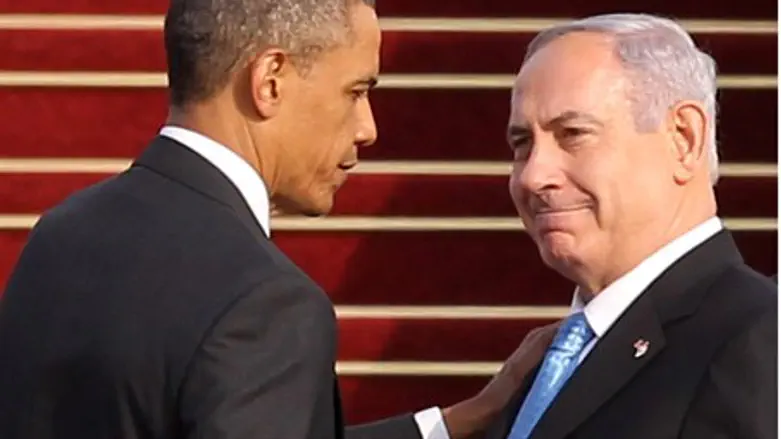
Both Israel and the Iran deal have become deeply partisan issues, according to a recent poll - despite repeated calls from politicians on Capitol Hill to discourage the nation from becoming divided over the issue.
Bloomberg Politics polled 1,008 adults between April 6-8, with a 3.1 point margin of error.
The results indicate that Democrats overwhelmingly support an agreement with Iran, shy away from choosing Israel's interests over the US's, and are sympathetic toward US President Barack Obama in conflicts he has had with Prime Minister Binyamin Netanyahu - and that Republicans overwhelmingly are skewed toward the opposite views.
Overall, 45% of respondents stated that the US must support Israel, even when it diverges from US interests; 47% disagreed, even if Israel is an "ally." 8% were not sure.
Republicans were twice as likely to say US should unequivocally support Israel and Democrats were twice as likely to say the opposite; Independents were split, 48% to 44%.
In terms of whether parties are more sympathetic toward Netanyahu or Obama in light of recent clashes between the two, 47% of respondents overall said they were more sympathetic toward Obama; 34%, Netanyahu; and 19% were unsure. 67% of Republicans chose Netanyahu over Obama, vs. 16% who chose the opposite and 17% who were unsure. Among Democrats, Obama was in the lead with 76% favoring him over Netanyahu - and just 9% supporting. 15% of respondents were unsure. Independents were slightly more likely to support Obama (44%) over Netanyahu (37%), with 19% unsure.
Religion does play a role: 58% of born-again Christians backed Israel over US interests, vs. just 35% who didn't. By contrast, only 26% Americans with no religious affiliation were likely to back Israel first. The poll did not provide data, however, on any other religious groups, and Bloomberg noted that of the respondents, all were Christian, Catholic, or otherwise non-affiliated.
Democrats very strongly support an Iran deal, the poll also revealed. While, overall, 49% of respondents believed the deal would make the world safer, and 43% were unconvinced (8% were unsure), the numbers rise dramatically among Democrats; 70% support an Iran deal, vs. just 24% who do not. 6% were unsure. Democrats thus support the deal at a startling 3:1 ratio.
Republicans, meanwhile, largely oppose the deal, with 62% pessimistic about its ability to make the world safer, and just 31% optimistic. 7% were unsure. Independents were once again split, with 48% against a deal, and 45% for.
